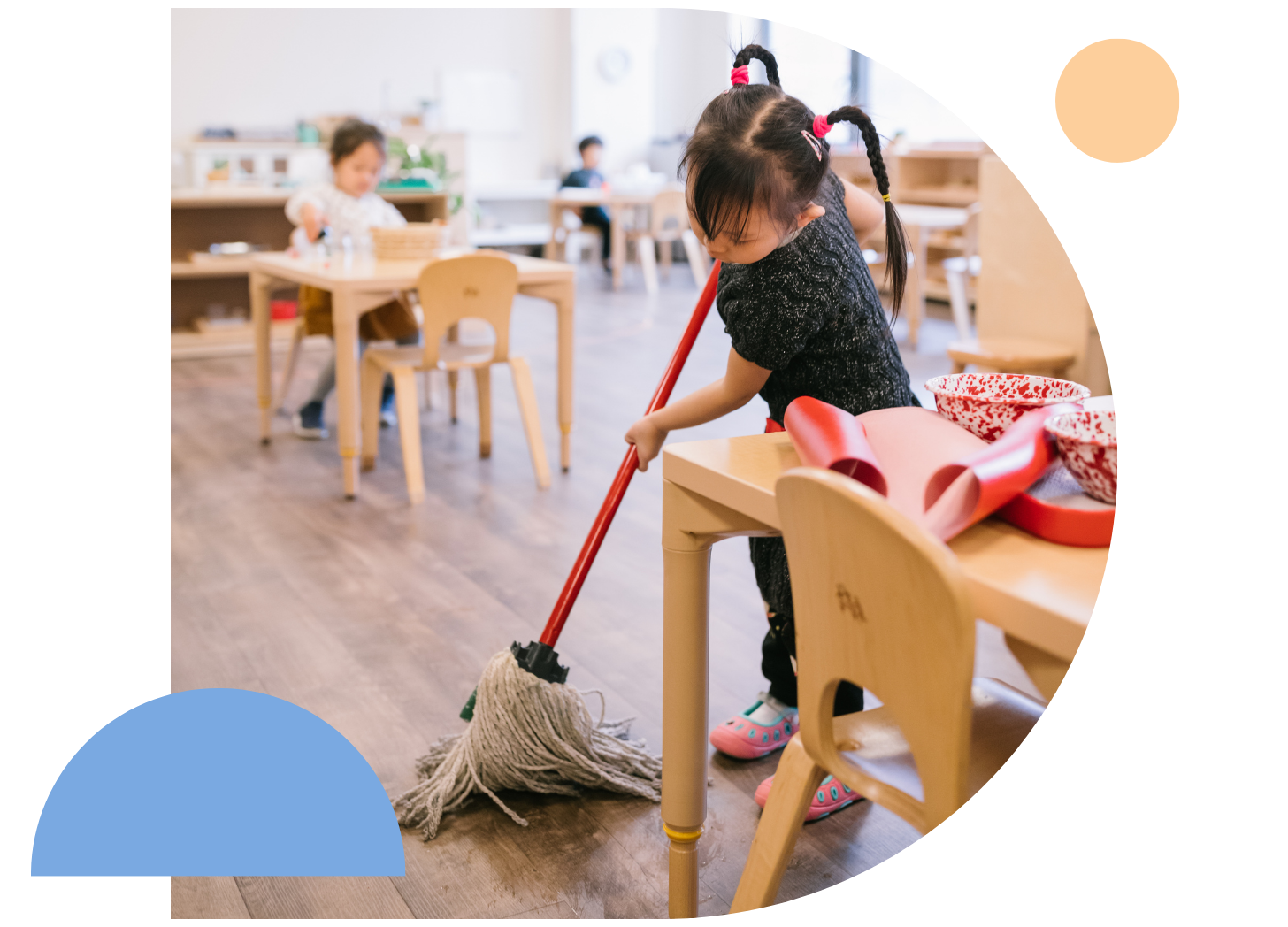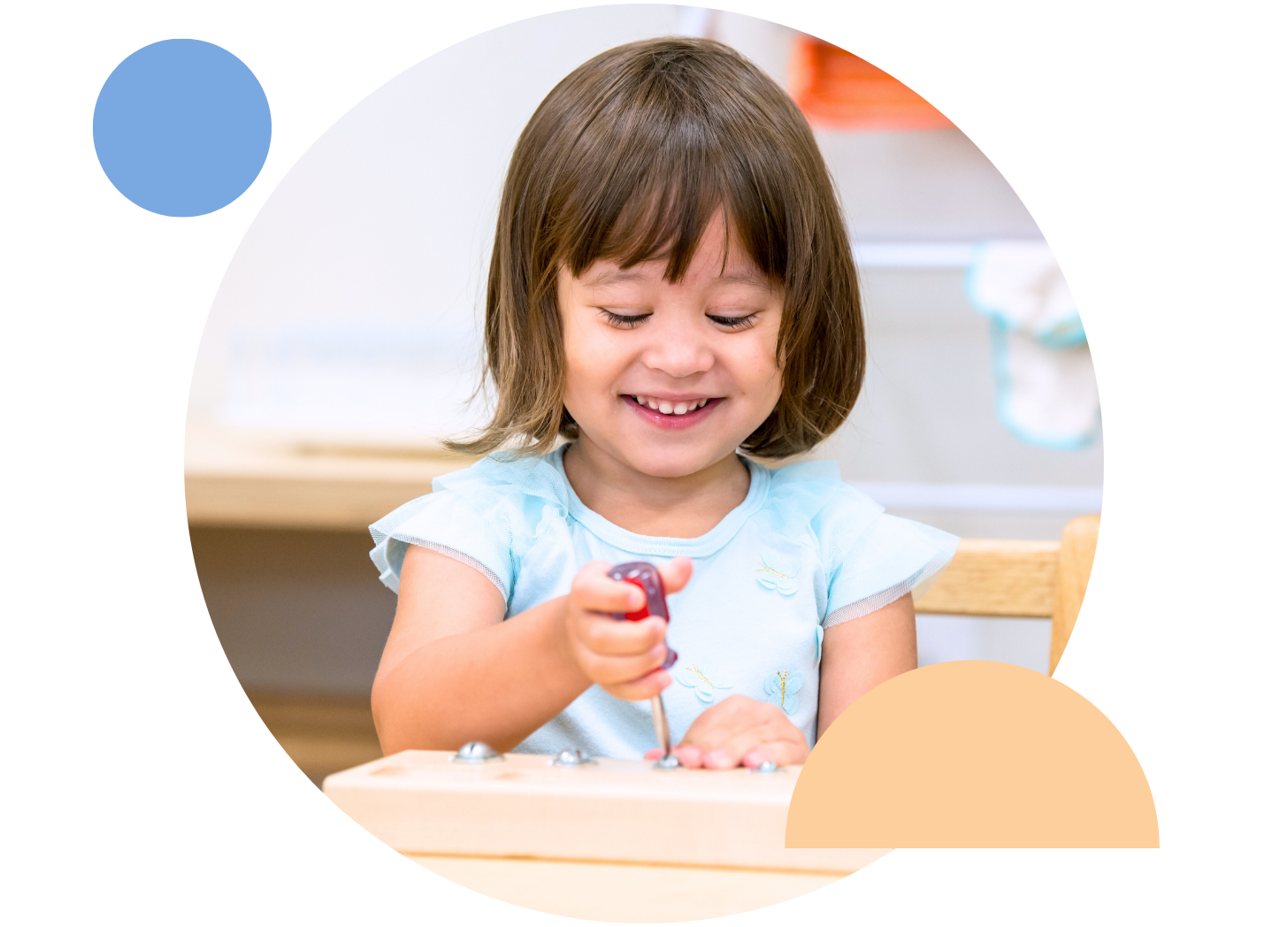To be happy, kids need to work
The secret to a happy childhood isn’t more playtime or presents. It’s work.
When you think of happy children, do you picture toddlers washing dishes or sweeping the floor? Do you envision preschoolers choosing math materials, sitting down at tables by themselves, and focusing for hours?
Odds are, probably not.
That's because we’ve been conditioned to associate childhood joy with playing tag, receiving presents, and eating ice cream — not scrubbing tables or diligently practicing multiplication.
“Kids are supposed to be having fun!” many parents say… but Montessori discovered children had a different idea of “fun” than adults might imagine. She wrote:
“We think the child is happiest when he is playing; but the truth is that the child is happiest when he is working.”
Think about it like this: You, as an adult, spend 80% of your waking time working and a significant portion of the rest doing household and family work.
If you don't derive enjoyment from effort, taking action, making choices, and accomplishing things... then there is very little in life for you to enjoy.
Life is working, thinking, and choosing — and children are more than capable of participating. In fact, they’re happy to do so.
This is why a Montessori education introduces children to meaningful work, teaching them to associate purposeful activity with joy.
But this happiness is not a shallow, fleeting emotion. Montessori children are really, truly, deeply fulfilled. They’re challenged, ambitious, self-assured, in love with the world, and excited about life… all because of where they go to school.
If that sounds like too much to expect out of a school, we get it. But hear us out:
Work is a superpower for children
To kids, everything in life is new and delightful. They’re just as happy to tie their shoes and read chapter books as they are to discover a butterfly while playing in the backyard. To them, work is wondrous.
As Matt Bateman puts it, a truly happy child “isn’t giggling at the delight of a tickle war; he is lost in concentration, brow furrowed, trying to peel an orange.”
And it makes sense, right? Samantha Westmoreland puts it like this:
If you woke up tomorrow with the ability to fly… if only you practiced
If you were suddenly transported to the world of Harry Potter and could use magic… if only you studied
If you learned that you could use the Force like Luke Skywalker… if only you dedicated yourself
Would watching movies or scrolling TikTok have any draw for you anymore?
Or would you be like Peter Parker in Spiderman, when he spent hours, perhaps days or weeks, lost in focus learning to climb walls, shoot webs, and swing from building to building?
We may not realize it, but children feel the same way about reading, writing, math, and practical activities like cooking and cleaning.
To a child, learning to read is like honing a superpower. Suddenly, they can access everything from books to road signs to grocery labels.
Like magic, where there was visual chaos, there is now order.
As parents, we can read, cook, and multiply large numbers with ease. These are rote, monotonous efforts.
But to kids, they’re new, exciting, powerful tools to help them navigate the world.
Here’s why this matters in both the short term and the long term:
Work makes children happier
If you have little ones, you might notice that they’re constantly restless, throwing tantrums, and demanding entertainment.
Again, we’ve been led to believe that these behaviors are “normal” for toddlers — and something we have to put up with as parents.
But when you walk into a Montessori classroom, you find that children choose to do real, challenging tasks and focus on them for half an hour, an hour, or even longer. They prefer to work alone, sans entertainment, praise, or other distractions.
By all accounts, they appear deeply satisfied with their self-sufficiency.
Consequently, Montessori children often become happy adults. Just two years at a Montessori school are shown to increase engagement, social trust, and self-confidence in adulthood.
And the more years a child spends in this environment, the more wellbeing they experience later.
In other words, the effort they expend in a Montessori classroom makes toddlers happier and more content in the present and as they grow up.
Raising happy kids
So, how can you begin to help your child regulate, mitigating tantrums and promoting joy?
We suggest giving them real, meaningful, practical work at home — just as they would do in a Montessori classroom.
This could be a kitchen task like loading and unloading the dishwasher, a laundry task like sorting clothes, or something more general, like sweeping the floor.
Whatever you choose, begin by teaching your child how to perform their work with child-sized tools, one step at a time. Then, let them practice until they’ve mastered it.
The happiness and sense of accomplishment they feel will be something they want to experience over and over again.
☀️ This week’s bright spots:
If you have a minute… Watch this adorable time-lapse of Matt’s one-year-old at the park — and see what happens when we let kids wander, uninterrupted.
If you have five minutes… Check out this study that shows Montessori students perform above average in reading and writing.
If you have ten minutes… Read this piece by Samantha Westmoreland for more on how Montessori makes kids happy.









